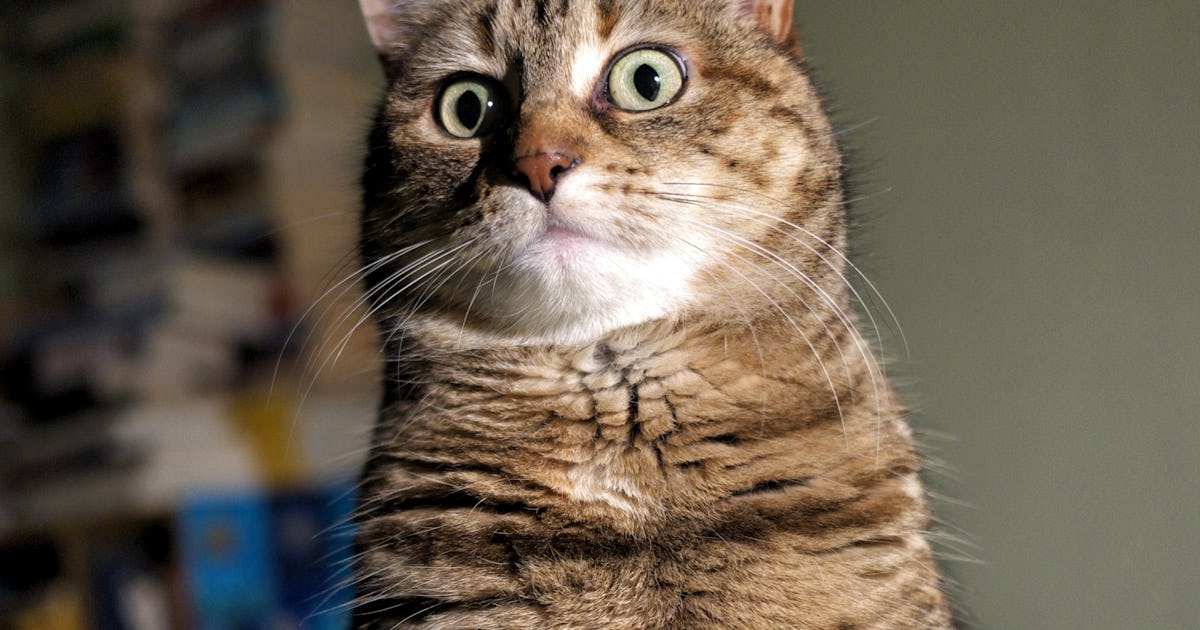The Fascination of Cats with "Pspspsps" Explained
Conceitos essenciais
Cats are drawn to the high-pitched sound of "pspspsps" due to its frequency and similarity to natural sounds, triggering an evolutionary response in felines.
Resumo
Cats' fascination with the sound "pspspsps" stems from its high frequency, resembling noises related to prey, and potentially signaling a threat or play. The response varies based on conditioning and individual cat personalities, with some showing fear while others exhibit curiosity or pleasure. Cats may ignore the sound if they find it irrelevant or are simply disinterested.
Personalizar Resumo
Reescrever com IA
Gerar Citações
Traduzir Fonte
Para outro idioma
Gerar Mapa Mental
do conteúdo fonte
Visitar Fonte
www.inverse.com
This Is Why Your Cat Freaks Out When You Say "Pspspsps"
Estatísticas
Cats can hear sound frequencies three times higher than humans.
The letter "s" has a higher frequency that attracts cats.
Cat's pupils dilate in response to big emotions like arousal.
Citações
"Cats can hear sound frequencies three times higher than we can — presumably so they can find prey more easily." - Molly DeVoss
"If you say “pspsps” enough times, can you condition your cat to respond accordingly? It’s worth a try." - Inverse
Principais Insights Extraídos De
by às www.inverse.com 02-21-2024
https://www.inverse.com/science/why-do-cats-like-the-pspspsps-sound-pet-experts-explain
Perguntas Mais Profundas
How do other pets react to similar high-pitched noises?
Other pets, such as dogs, may also react to high-pitched noises in various ways. Just like cats, dogs have a keen sense of hearing and can be sensitive to certain frequencies. High-pitched sounds can grab their attention or even cause discomfort if too loud. Some dogs may respond positively by wagging their tails or showing excitement, while others might exhibit signs of fear or anxiety. It ultimately depends on the individual pet's personality and past experiences with similar sounds.
Is there any scientific evidence supporting the conditioning of cats through specific sounds?
While there isn't extensive scientific research specifically on conditioning cats through sound, the concept of classical conditioning is well-established in animal behavior studies. Classical conditioning involves associating a neutral stimulus (such as a sound) with a meaningful event (like receiving treats). Over time, this association can lead to a learned response from the animal when exposed to that particular stimulus. So while there may not be direct evidence for cat-specific sound conditioning, the principles of classical conditioning suggest that it is indeed possible.
What role does human interaction play in shaping a cat's response to unusual noises?
Human interaction plays a significant role in shaping a cat's response to unusual noises. Cats are highly influenced by their environment and interactions with humans. If an owner consistently uses specific sounds around their cat in positive situations (like offering treats or affection), the cat is likely to associate those sounds with positive outcomes and respond accordingly. On the other hand, negative interactions or lack of consistent reinforcement can lead to indifference or even aversion towards certain noises. Therefore, human involvement and consistency are crucial factors in shaping how cats perceive and respond to unusual sounds in their surroundings.
0
